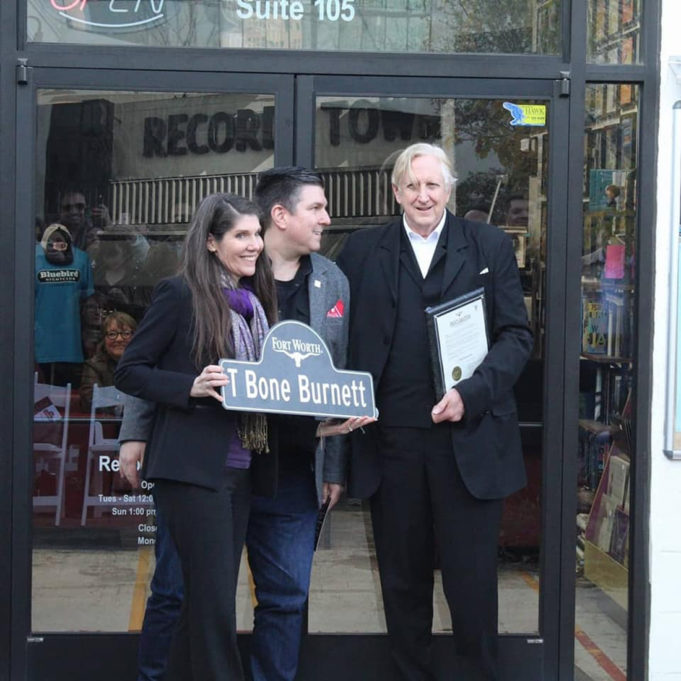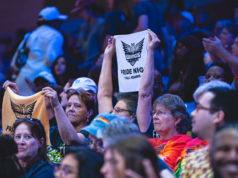Visit Fort Worth hosted a private Q&A session with T Bone Burnett before a ceremony renaming St. Louis Avenue in honor of the music legend with deep local roots. Burnett was in town to keynote the organization’s annual meeting. A few dozen local musicians and guests packed a small loft in the Near Southside as Chip Adams, community outreach staff member at Texas Music Office, started the informal interview.
What were your earliest Fort Worth memories?
I remember Leonards Department Store [in downtown]. I remember walking in [and seeing] a sign that said, “Colored Water Fountain.” It freaked my little mind out. Marvin Leonard ended segregation voluntarily. That’s what I love about Fort Worth. We did it because it was the right thing to do. I think there’s a deep integrity in the heart of this place that I’m grateful to [have] been brought up in.
When did that seed get planted that started your interest in music?
When I was a kid, my mother was on the symphony board and Casa Mañana board. I sat through many performances of Show Boat. There was always music in the house. I’d listen to 78s of Ella Fitzgerald.
Talk about your memories of Record Town.
On the desk was a big book where you could order records. We have the internet now. In those days, finding a Skip James record was like finding a talisman. You could find bits and pieces of country and blues — what I call American music. The great thing about the United States is that we’re not a pure culture. We’re a culture that’s put together from different pieces. We’ve spread culture with the soft power of American music. Music is our greatest wealth.
Why do you use Townes Van Zandt often in your films?
We lived four houses from each other for a period of time. He’s deep, and he’s mysterious. Part of [his genius] was insanity. He was manic-depressive. He wasn’t a good singer; he was a great singer. You can be a great singer and not a good singer.
As a producer, do you have a set of guiding principles?
I definitely do. I should probably write it down. I don’t care what anybody plays. I care who is playing it. It’s the person you are listening to. That is the first thing. I don’t like to tell anybody what to play. I think it’s done through support and encouragement. The only way to do that is through love.
What virtues have you found to be valuable in your career?
Gratitude. I’d start with gratitude. If you come from that place, from a place of being grateful for being able to do it all, you are in a better place than thinking, “I’m a victim.” I think that’s the hardest lesson I’ve had to learn. I was, and am, a spoiled brat.
How do musicians protect intellectual property?
The internet is a free zone with people who are without ethics. They want to be their own law out in their ocean. They weren’t raised with the humanities. You’re left with people like Mark Zuckerberg who have no idea what damage they are doing. Artists can give us things that we can all love. That’s the goal.
What advice do you have for musicians?
Don’t think of music as a career. Think of it as a ministry. The arrows don’t point toward you. They point toward the audience. Generosity is the hallmark of an artist. Live in gratitude. Artists need to work toward reconciliation. We can’t hate each other. Democrats aren’t the enemy of Republicans. We can do that, but the country will fall.












